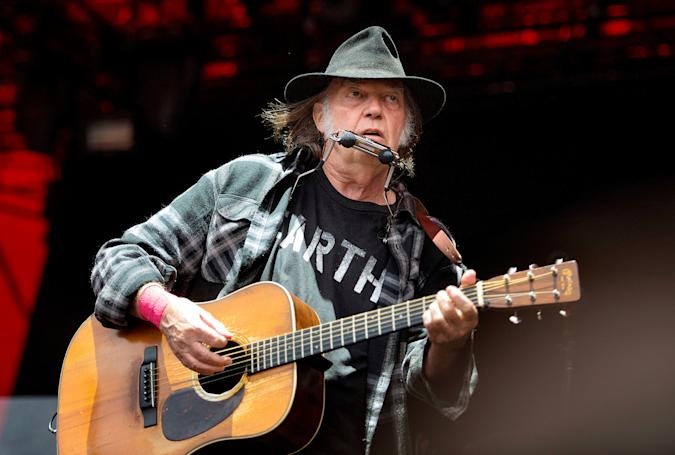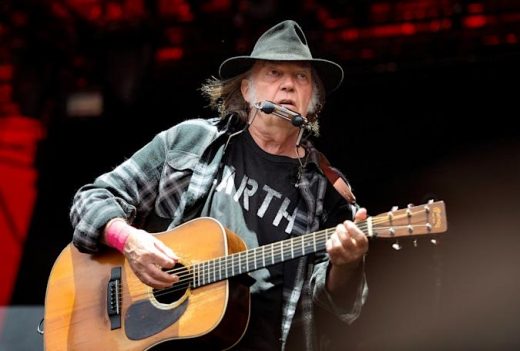Spotify will add a ‘content advisory’ to COVID-19 podcast episodes
Neil Young was fed up with Spotify’s ‘shitty’ sound quality anyway
The musician ‘felt better’ after his music was removed from the platform this week.


Neil Young’s frustrations with Spotify go far beyond COVID-19 vaccine misinformation. A day after his music was removed from the platform, he said he “felt better” after leaving and slammed Spotify for its sound quality compared with other streaming services.
“Amazon, Apple Music and Qobuz deliver up to 100 percent of the music [quality] today and it sounds a lot better than the shitty degraded and neutered sound of Spotify,” Young wrote in the latest letter published to his website. “If you support Spotify, you are destroying an art form.” He urged fans to switch to “a platform that truly cares about music quality.”
Young, who claims “Spotify streams the artist’s music at five percent of its quality,” has long been vexed by the audio quality on some streaming platforms. He temporarily removed his music from them in 2015. Young launched his own audio player and music download platform that year, but Pono shut down in 2017.
In February 2021, Spotify said it planned to roll out a CD-quality music streaming option in some markets that year. That didn’t happen. The company said earlier this month it was “excited to deliver a Spotify HiFi experience to Premium users in the future,” but didn’t offer a timeline.
Apple Music, Amazon Music and Tidal all started offering CD-quality music streaming as part of their standard plans last year. Deezer and Qobuz also offer hi-res streaming.
Earlier this week, Young accused Spotify of allowing Joe Rogan to share COVID-19 vaccine misinformation and gave the platform an “it’s him or me” ultimatum. Spotify, which reportedly paid north of $100 million to secure the exclusive rights to Rogan’s podcast and said it has taken down more than 20,000 COVID-related podcast episodes, barely flinched. The service pulled the musician’s songs, though said it regretted Young’s decision and hoped he’d return soon.
Meanwhile, Young wrote that he supported free speech and companies’ right to choose what to profit from, “just as I can choose not to have my music support a platform that disseminates harmful information.” He said he was standing “in solidarity with the frontline healthcare workers who risk their lives every day to help others” and “as an unexpected bonus, I sound better everywhere else.”
(58)


